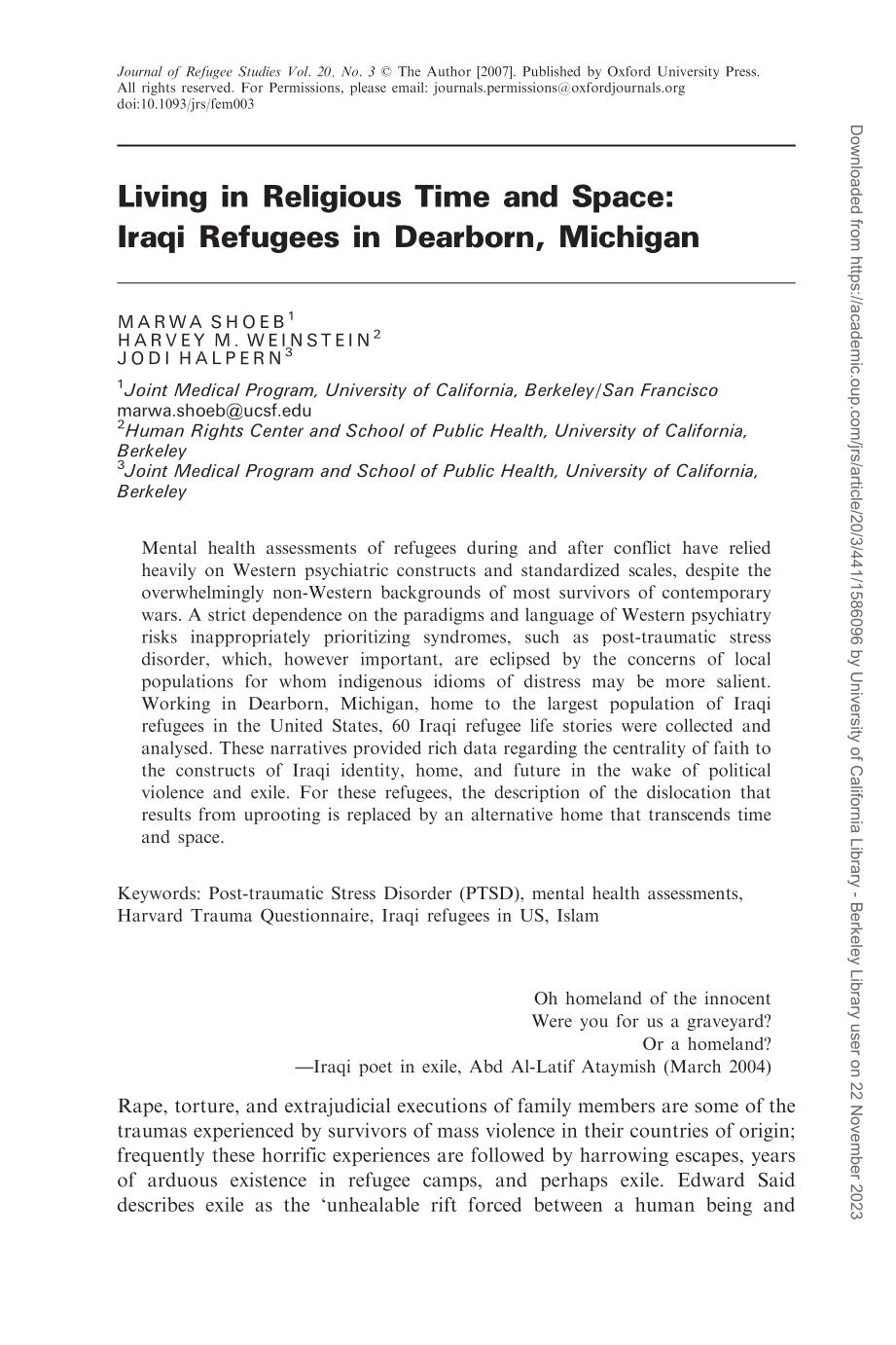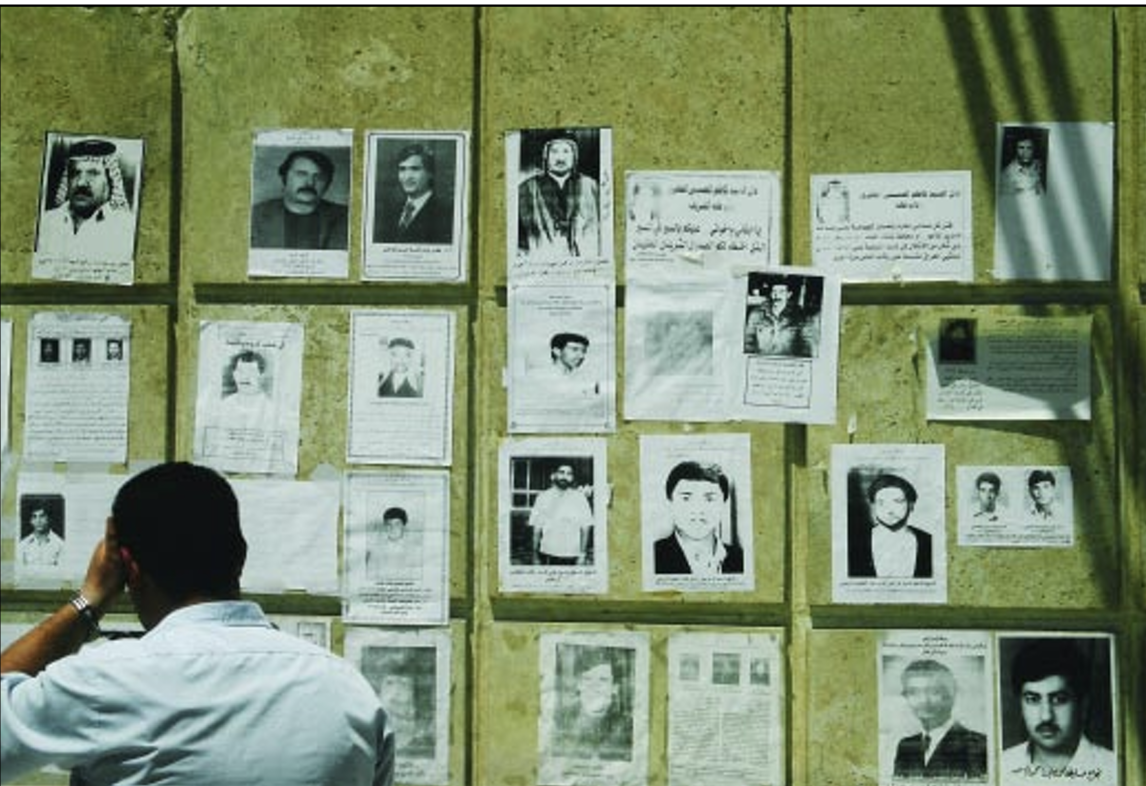Living in Religious Time and Space: Iraqi Refugees in Dearborn, Michigan
Download PDFSummary
Mental health assessments of refugees during and after conflict have relied heavily on Western psychiatric constructs and standardized scales, despite the overwhelmingly non-Western backgrounds of most survivors of contemporary wars. A strict dependence on the paradigms and language of Western psychiatry risks inappropriately prioritizing syndromes, such as post-traumatic stress disorder, which, however important, are eclipsed by the concerns of local populations for whom indigenous idioms of distress may be more salient. Working in Dearborn, Michigan, home to the largest population of Iraqi refugees in the United States, 60 Iraqi refugee life stories were collected and analysed. These narratives provided rich data regarding the centrality of faith to the constructs of Iraqi identity, home, and future in the wake of political violence and exile. For these refugees, the description of the dislocation that results from uprooting is replaced by an alternative home that transcends time and space.

